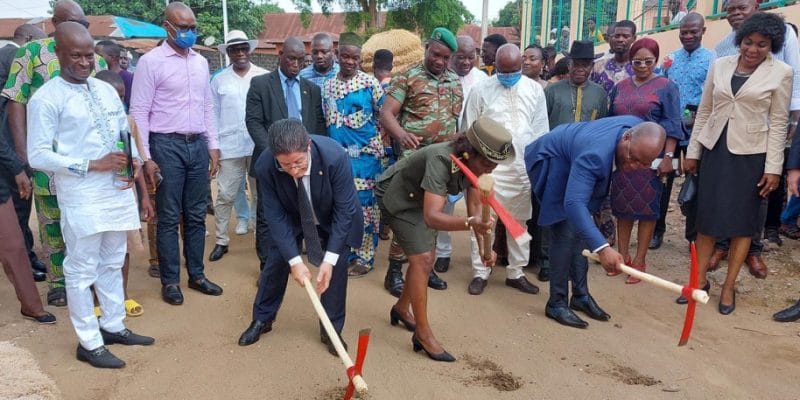The government of Benin is launching sanitation works as part of the Porto-Novo Green City project (PNVV) financed by a loan from the French Development Agency (AFD). Through the construction of sustainable socio-economic infrastructure, this initiative, costing 6.2 billion CFA francs (9.5 million euros), will improve the living conditions of the population of the Beninese capital and increase resilience to climate change.
In Benin, a large proportion of the inhabitants of the capital Porto-Novo live in wet and swampy areas, particularly in Lokpodji, Tokpota and Dowa. Faced with the resurgence of flooding in times of high water, the government has just launched rainwater sanitation works as part of the Porto-Novo ville verte (PNVV) project, financed to the tune of 6.2 billion CFA francs (9.5 million euros) by the French Development Agency (AFD).
This project, which is also supported by the French Global Environment Facility (FGEF) and municipal services, aims to renovate and protect the environment of precarious neighbourhoods through drainage, development and opening up of access roads to the river banks. The initiative will also enable the paving of 369 m of roadway, the construction of 821 m of gutters near the site of the National Assembly under construction, as well as the creation of green spaces and the installation of public lighting equipment in Porto-Novo.
Improving resilience to flooding
“The project includes the elaboration of a sustainable urban development plan to make Porto-Novo a resilient, structured city adapted to climate change. It also includes support for income-generating activities, particularly market gardening and fish farming,” says AFD, represented in Benin by Jérôme Bertrand-Hardy.
Read also:
Ultimately, the project will help build resilience to floods that leave significant damage in Porto-Novo and Cotonou where the government also launched the Stormwater Sanitation Program (PAPC) last April. This other project aims to build 90 km of secondary collectors and street side gutters, the development of seven retention basins as well as the acquisition of equipment for solid waste collection in the economic capital. All of this is financed through loans from several development partners, including the World Bank and the AFD.
Benoit-Ivan Wansi







